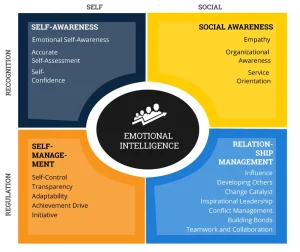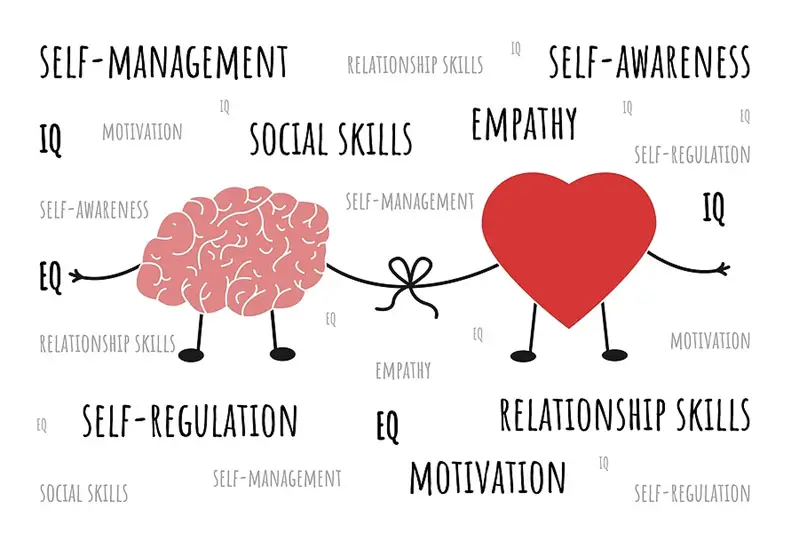The Foundations of Emotional Intelligence: Understanding the Four Pillars
Emotional Intelligence (EI) is a powerful tool that can greatly enhance how we interact with the world around us. At its core, EI involves understanding and managing our own emotions, as well as recognizing and influencing the emotions of others. This skillset is built upon four foundational pillars: self-awareness, self-management, social awareness, and relationship management. Each pillar plays a critical role in developing a well-rounded, emotionally intelligent individual. Let’s delve deeper into these core components.
1. Self-Awareness
Self-awareness is the cornerstone of emotional intelligence. It involves having a deep understanding of your own emotions, strengths, weaknesses, values, and motives. People with high self-awareness are conscious of their feelings in the moment and understand how their emotions can affect their thoughts and behaviors. This awareness is crucial for personal growth, as it allows individuals to recognize which areas of their life need improvement and to navigate their emotions effectively.
Strategies to Enhance Self-Awareness:
– Keep a journal to reflect on your daily emotions and reactions.
– Seek feedback from trusted friends or colleagues to gain different perspectives on your behavior.
2. Self-Management
Self-management, or self-regulation, refers to the ability to control and appropriately direct our emotions. It’s about expressing our feelings in suitable ways, managing our impulses, and adapting to changing circumstances. High self-management means being able to stay calm and clear-headed under stress, and it enables individuals to make thoughtful decisions without being overly influenced by their emotions.
Tips for Better Self-Management:
– Practice stress-reduction techniques, such as mindfulness or deep-breathing exercises.
– Set clear goals and standards for your behavior, and monitor your progress.
3. Social Awareness
Social awareness involves understanding and empathizing with the emotions of others. It’s about recognizing social cues, understanding the dynamics in a room, and being able to put oneself in someone else’s shoes. This pillar is crucial for building strong, healthy relationships, as it helps us to interact with others respectfully and compassionately.
Ways to Improve Social Awareness:
– Practice active listening and give your full attention to others when they speak.
– Observe body language and social cues to better understand how others are feeling.
4. Relationship Management
The final pillar, relationship management, is about using our awareness of our own emotions and those of others to navigate interactions successfully. It involves clear communication, effective conflict resolution, and the ability to inspire and influence others. Mastery of this pillar enables individuals to build and maintain healthy relationships, both personally and professionally.
Techniques for Effective Relationship Management:
– Develop your communication skills, focusing on clarity, empathy, and active listening.
– Learn conflict resolution strategies that emphasize collaboration and understanding.
Conclusion
Emotional Intelligence is not an innate talent but a set of skills that can be developed over time. By focusing on these four pillars—self-awareness, self-management, social awareness, and relationship management—individuals can enhance their ability to understand and manage their emotions, relate better to others, and navigate the complexities of social interactions. Whether in personal life or in the workplace, a strong foundation in emotional intelligence can lead to more fulfilling and successful relationships and outcomes. As we continue to recognize the value of these emotional skills, we open ourselves up to growth, understanding, and a more connected way of living.



